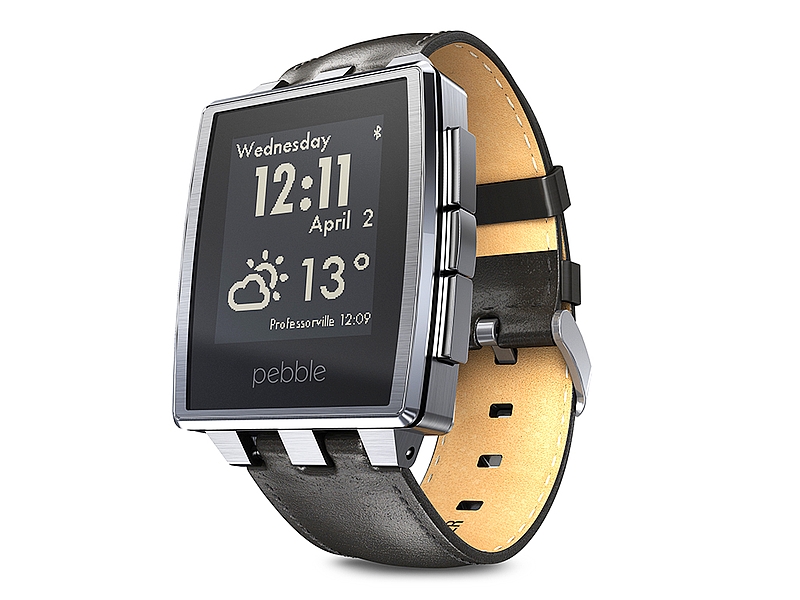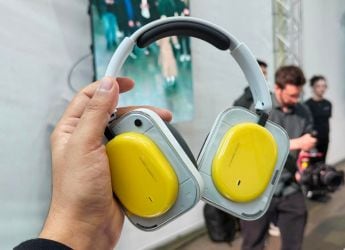- Home
- Wearables
- Wearables Features
- What Pebble's Layoffs Can Tell Us About the Future of Smartwatches
What Pebble's Layoffs Can Tell Us About the Future of Smartwatches

Pebble is giving the pink slip to roughly a quarter of its workforce, in a sign that all is not well at the smartwatch maker.
The layoffs come at a tough time for the wearables industry, whose fitness trackers and other connected devices haven't been selling as well as early enthusiasts may have hoped, analysts say.
Earlier this month, Pebble cut the price of its Pebble Time and Time Round watches by $50 (roughly Rs. 3,300), foreshadowing a similar move by Apple this week to also lower the price of its Apple Watch by $50. It's unclear whether the price cuts will spur consumers to buy more devices. But Pebble chief executive Eric Migicovsky told Tech Insider that investors all across Silicon Valley are getting a little more tightfisted with their cash right now, which is putting more financial pressure on the company. Despite that, Pebble still managed to raise $26 million (roughly Rs. 173 crores) in the last eight months, said Migicovsky. (The company declined to comment for this story.)
Smartwatch makers aren't the only companies struggling to make progress in the nascent wearables market. After successfully debuting on the New York Stock Exchange last year, Fibit has seen its stock tumble roughly 70 percent.
But if you're looking for evidence that smartwatches and wearable tech are just a fad or a bubble, some investors and analysts say, you should go hunting somewhere else.
"Often the hype gets ahead of the expectations, and it takes longer for these markets to develop," said Fred Wilson, a partner at Union Square Ventures. "It happens all the time, and it's not a bad thing. I think wearables is a real market, but it's not going to turn into tens of billions of dollars overnight."
That no one has figured out a magic formula yet for wearables that strikes the right balance of form, function and convenience is hardly a surprise when many consumers are still warming to the idea of wearable technology in the first place. Studies do suggest consumers will get there eventually; the networking equipment firm Cisco anticipates 600 million wearable devices to have been sold by 2020, reflecting a six-fold increase over today.
But the early struggle by Pebble and others to gain traction highlights something else particular to this moment: the challenges of building a hardware-only business in a world that's increasingly driven by software and services. Companies such as Google and Facebook have turned data-gathering and advertising technology into enormous businesses, and others, such as Uber, enjoy huge advantages in the marketplace because they don't need to spend money on running and maintaining vehicles.
Even Apple has begun to catch on, expanding cautiously into streaming music and television. It's doubled down on iCloud and a software ecosystem that encourages people to stay, making sure their next device, or the next app they buy, operates within it. Because of Apple's global reach, its services don't need to be the world's best - although that won't stop the company from trying. They simply need to be good enough.
For smartwatch makers, looking toward software and services may be a way out of their sales conundrum. "Companies that do not really have an ecosystem and are trying to sell hardware are . . . really struggling as the smartphone market is slowing to a crawl," said Richard Windsor, an analyst at Edison Investment Research.
© 2016 The Washington Post
For details of the latest launches and news from Samsung, Xiaomi, Realme, OnePlus, Oppo and other companies at the Mobile World Congress in Barcelona, visit our MWC 2026 hub.
Related Stories
- Samsung Galaxy Unpacked 2026
- iPhone 17 Pro Max
- ChatGPT
- iOS 26
- Laptop Under 50000
- Smartwatch Under 10000
- Apple Vision Pro
- Oneplus 12
- OnePlus Nord CE 3 Lite 5G
- iPhone 13
- Xiaomi 14 Pro
- Oppo Find N3
- Tecno Spark Go (2023)
- Realme V30
- Best Phones Under 25000
- Samsung Galaxy S24 Series
- Cryptocurrency
- iQoo 12
- Samsung Galaxy S24 Ultra
- Giottus
- Samsung Galaxy Z Flip 5
- Apple 'Scary Fast'
- Housefull 5
- GoPro Hero 12 Black Review
- Invincible Season 2
- JioGlass
- HD Ready TV
- Latest Mobile Phones
- Compare Phones
- Nothing Phone 4a Pro
- Infinix Note 60 Ultra
- Nothing Phone 4a
- Honor 600 Lite
- Nubia Neo 5 GT
- Realme Narzo Power 5G
- Vivo X300 FE
- Tecno Pop X
- MacBook Neo
- MacBook Pro 16-Inch (M5 Max, 2026)
- Tecno Megapad 2
- Apple iPad Air 13-Inch (2026) Wi-Fi + Cellular
- Tecno Watch GT 1S
- Huawei Watch GT Runner 2
- Xiaomi QLED TV X Pro 75
- Haier H5E Series
- Asus ROG Ally
- Nintendo Switch Lite
- Haier 1.6 Ton 5 Star Inverter Split AC (HSU19G-MZAID5BN-INV)
- Haier 1.6 Ton 5 Star Inverter Split AC (HSU19G-MZAIM5BN-INV)















